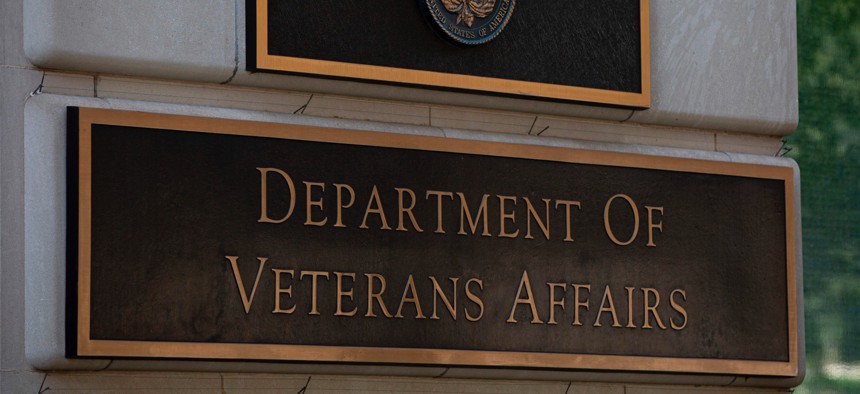
A new rule will allow the VA to suspend disability compensation when the Defense Department notifies it that the recipient has returned to active service. ALASTAIR PIKE / Getty Images
A new rule allows the VA to adjust disability compensation to prevent overpayments
The rule, set to go into effect on Jan. 11, would allow the department to suspend or pause disability compensation for Defense Department servicemembers also receiving active service pay.
A Veterans Affairs Department rule five years in the making is set to go into effect Thursday and is designed to help prevent overpaying disability compensation benefits to active-duty personnel.
The final rule amends U.S. statutes governing how the VA can determine whether to terminate or reduce disability benefits to a servicemember or veteran, shifting some of the burden away from the veteran and to the Defense Department.
Under the previous rules, “VA must provide a veteran with notice of a proposed adverse action and 60 days to provide evidence showing why the adverse action should not be taken,” but continues to pay the benefits during that 60-day period.
“This becomes problematic for some veterans on active duty serving in remote locations, such as a combat zone or similarly austere environments, with infrequent mail service and no reasonable method for dealing with financial matters,” said a Dec. 12 Federal Register notice outlining the rule.
The only way for the VA to currently prevent instances of overpayment is if the veteran provides a statement confirming a return to active or training service prior to receiving pay for it, allowing the department to suspend disability benefits.
But under the new rule, if the beneficiary is returning to active or training duty, the department can immediately suspend payment of the benefits, regardless of the 60-day adjudication window, based on notice from the Defense Department that the veteran is receiving active service pay.
The rule is designed to help prevent potential overpayments to ineligible beneficiaries that the VA then has to try and recover from the recipient. That overpayment recovery may ultimately include “aggressive collection action” that could ultimately impact the veteran’s credit history, eligibility for a security clearance or even employment, the 2019 proposed rule said.
Based on public comment to the rule, VA also made adjustments to ensure benefits were suspended upon the veteran receiving active service pay and not DOD notice of prospective active service pay, which may be subject to change.
VA also has added language to the rule that would allow for the resumption of benefits, based on a DOD notice that a veteran has been released from active duty or active duty for training, with an option for the veteran to inform through a claim to recommence payment.
“If VA receives notice from DOD or a claim for recommencement of payments within one year from the date of release from active duty or active duty for training, payments, if otherwise in order, will be resumed effective the day following release. Otherwise, payments will be resumed effective one year prior to the date of receipt of a new claim,” the Dec. 12 notice said.
Immediate benefit suspension without advance notice to the veteran will only occur if they received concurrent receipt of compensation and payment, “advance notice of the suspension and notice that suspension of compensation payments based on subsequent payments for the same type of service would be made without additional advance notice.”
The rule is meant to reduce the burden on veterans to notify the VA of their active service payments and the status of their disability benefits and to streamline communication with the Defense Department to help verify the status.







